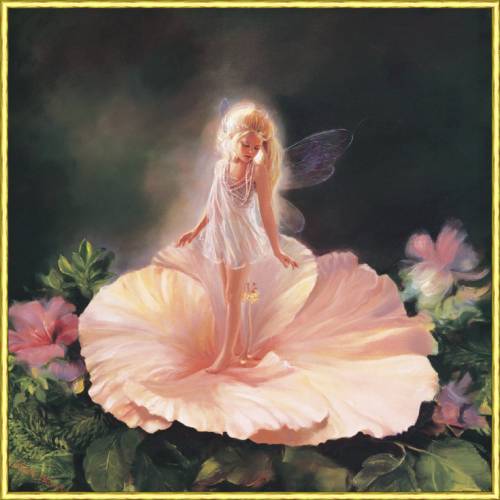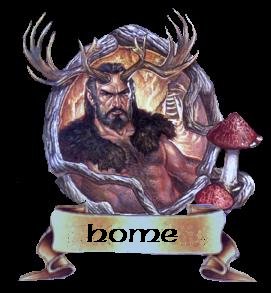|
Faith & Scepticism
|
|||
| |||
|
It happens to everyone every so often, myself included. You'll be going along, keeping your Sabbats and doing your everyday spiritual and magical workings, and everything seems to be fine, when suddenly everything just seems to go dull. Your intuitions are off, or your spells go haywire, or the thought creeps into your head, So, I'm sitting during ritual work, talking to a dragon in my head. What, am I out of my mind?
It may help you to know that several occult authors consider this to be progress.
Let me digress for a moment into the balance of faith and scepticism that is important for the effectiveness and sanity of any worker of magic. On one hand, faith must play a role in the spiritual and magical realms, since they are usually imperceptible and essentially unprovable by physical science or the physical senses. Too much doubt only eats away at your ability to trust your abilities and perceptions, and eventually at those abilities and perceptions themselves.
On the other hand, if you are going to deal with the Otherworld on a regular basis, you must learn to measure how 'true' your perceptions are, and how reliable are your otherworldly companions - otherwise you will stop growing or be sold a bridge by a spirit looking for laughs at your expense.
And so, in normal workings, it pays to keep a certain mindset. Assume, for your own sanity, that your experiences are essentially genuine. (In fact it often doesn't matter ultimately whether a particular journey is into another realm or into your own head, as long as you use the information to improve yourself. The growth will be genuine either way). However, do compare notes with others who take the same journey if you work in a group. You will probably find that over time, with practice, you will more and more be sharing the same experiences, and this is an extremely gratifying thing to discover. It also allows for things like a group journey to find a single totem or guide who is willing to help an entire coven. You will be able to compare the quirks of how you perceive the other worlds and energy , and learn where you may be strong or weak in your skills.
Another good idea is to research any teachings you receive from astral guides, or any past life memories. You may find confirmation of what you have been taught or have remembered, which is again very gratifying. You may also find clarification of what was meant that will encourage even more development for you. Or you may find no such confirmation, and know that you will need more clarification - and possibly some revisions - before you can trust and use the information.
But we were talking about the other kind of doubt - the one that comes and sits on your head when you're about to do something important and whispers unpleasant nothings in your ear. If you were raised Christian, it may whisper about delusions and devil worship. If you were raised agnostic or atheist, it may deride your work as superstitious nonsense. If you have trouble with self-esteem, it will poke fun at the 'specialness' of being able to do magic. It will find your weakness and poke at it with a pointed stick.
It's you. And as I mentioned, it is by several accounts a sign that you are getting somewhere.
Aleister Crowley defines this as an 'Apophis stage'. He defines the study of magic as a continuing three-part cycle, and names the stages. Isis, Apophis and Osiris, after Egyptian gods. (By the way, the initials are IAO, a devine name from Hermeticism that has several other applications in ceremonial magic). In the Isis stage, we have just begun a certain phase of development. Everything comes easily, and we feel quite good about ourselves and our studies. But then, Apophis comes. Our abilities seem to dry up, or at least become very difficult to use, and we are plagued by dark thoughts of failure.
We can give up here, many people do. We can leave the occult entirely or move into another Isis stage in another discipline. But to deepen, we have to keep working through Apophis to get to Osiris. In the Osiris stage, our abilities return, different than before, in the light of our new understanding. We have gained wisdom and depth that will enrich all our future cycles.
For Wiccans, it will not take much imagination to compare this cycle to that of Life, Death and Rebirth that we celebrate, or to the initiation in which we are tried, and symbolically die and are reborn. For followers of the Northern paths, a comparison might be made to Odin's willingness, time and again, to sacrifice himself to gain more magic and wisdom.
Of course, not every passing silly thought develops into a dark night of the soul, but even the smaller ones can serve as signposts. Marian Green, in her book A Witch Alone, discusses the momentary doubts that plague each of us at some point. (Excerpt follows:)
"If you commit yourself to the Hidden Paths or walking the Old Ways you will certainly be in for some surprises. The most common of these are the feelings, which never entirely go away, of 'Why on Earth am I doing this? Why am I wearing this strange robe, talking to trees or invisible beings, thing that "spells" can possibly work in the twentieth century?' You will often find, right in the middle of a meditation or ritual, such thoughts creeping into your head, making you feel a fool. This is a sure sign that your magic is working, for you have so certainly stepped out of your normal role in life or set aside, just for the moment, the very ordinary self to adopt that magical inner personality, that it is trying to reassert what it considers normality."
"It never entirely goes away, as any adepts you come across will tell you, and even after decades of participating in celebrations, speaking directly with the Old Ones, venturing into the wilderness, both without and within, this sense of amusement, of fun and wonder, never really dies. It is a recollection that you are indeed straying from the ordinary world and it should never trouble you, just provide a moment's humour when the power is coming through."
Keep on with guarding: with faith, a sense of humour, and a single grain of salt, and blessed may you be.
|


